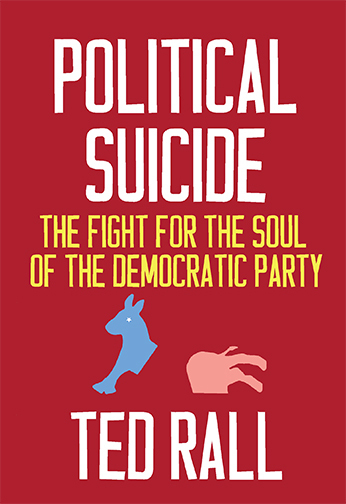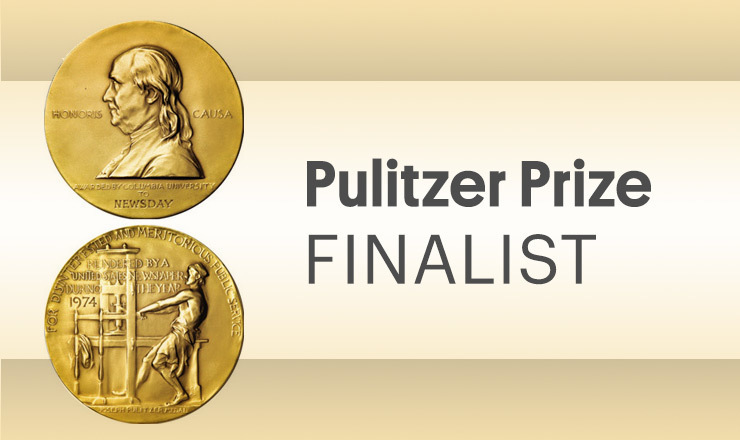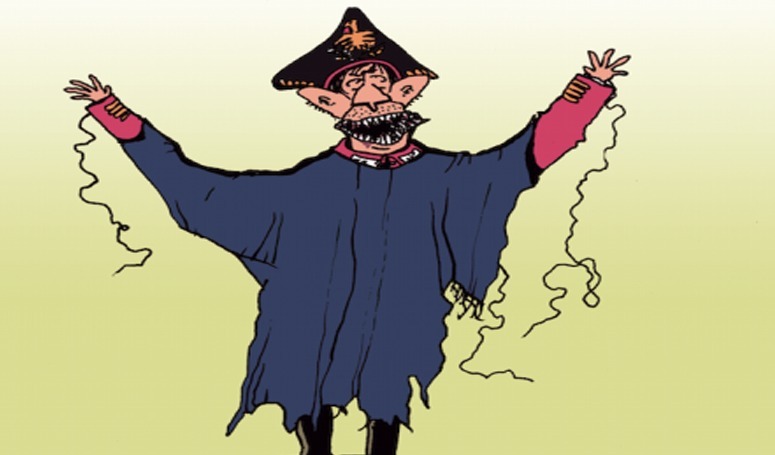Ted Rall for July 04, 2009
Transcript:
Philosophie, FR bulletin board 1936. JPSartre: I think I've finally reconciled the conflict between phenomenology and free will. <<Nausee>> posits the absurdity of death and terrible burden of personal responsibility. GarconTroll: LMAO ROTF! Who are you to teaach anyone anything, dorkass loser! Nice glass-not! JPSartre: Limited choices in eyewear reflect the shortcomings of the capitalist/consumerist system. Yet I accept my own failures in doing better. Now, I'm wondering, what do you guys think of using fiction as a device to populate existentialism? SecondSexGrrl: Very clever. Campus couldn't do better. JPSartre: I regret dissing Kant, but the world's indifference to the individual makes it unavoidable. GarconTroll: Get a room, fatties!!!!!! JPSartre: We're not fat...







aardvarkseyes almost 15 years ago
Absolutely, hilariously brilliant!
Thomas R. Williams almost 15 years ago
When Jean-Paul re-met Simone. No doubt they are exploring how well Being can satisfy Nothingness.
babka Premium Member almost 15 years ago
the deafening sound of brains blinking out, one computer at a time - bingo, Ted. sad & true.
edmondd almost 15 years ago
TexasMan: Pearls can be found amid the mire. Why did he give up?
Ted: Futility nonetheless. All is futile.
TexasMan: That makes cynicism futile too.
Ted: At least it pays the bills.
wmclay almost 15 years ago
Nice 4th of July theme, not! ROTFLMFAO!!!1
voice_of_reason almost 15 years ago
Wait a minute… I can’t help but wonder how Freud’s theory of behavior being effected (caused) by the irrational subconscious impulses factors into the determinism argument. If we are predisposed to certain choices by factors of which we are not aware and which may not apply to the current options we are choosing from; can they be considered choices? E.g., I like bleu cheese dressing on my salad because my father always complimented my mom about looking sexy when she wore that blue dress and the word “blue” was operantly conditioned to the feeling of well-being I experienced when my parents were happy and then associated with eating because I was too young to understand sex. I might say I like the taste of the dressing, but why did I associate that taste with the idea of “good?” Of course, the coincidence of salad dressing and my mom’s dress is not un-coincidental; but not a rationally derived association either. What my father might have thought of fressing as a practice starts to make me wonder why it was that I choose this as an example in the first place.
Sartre finished off God …did Freud & B.F.Skinner finish off philosophy?
I don’t even know why that question occurred to me… let alone why i posted it.
fritzoid Premium Member almost 15 years ago
I’ve had this argument with a friend of mine many times. He’s fond of quoting Nietzsche with something like “Can one will the sun to rise one second sooner than it would? Then how misplaced is this emphasis on what we call Free Will!” (If this is a misquote, it may be his or it may be mine.)
My point has always been that, even if Free Will DOESN’T exist, it makes no difference. Even if 75%, or 95%, or 99.999% of what happens is beyond our control, we still have that 25% or 5% or 0.001% which IS responsive to our wills, so we should focus on THAT.
It may turn out that every “choice” we make is the unavoidable outcome of individual neurons firing over which we have no control; in this mechanistic model, there perhaps IS no such thing as Free Will, since it IS all simply Cause and Effect. But so what if is this is true? What if it ISN’T true, but one believes it anyway?
If an individual ceases to believe in Free Will, how does that person behave? When he wakes up in the morning, that person MIGHT simply lie in bed all day waiting for his neurons to COMPEL him to rise, and perhaps he is mechanistically “fated” to do so. More often, I think he would simply go about his routine of getting dressed and going to work, and again he is mechanistically “fated” to do so. But perhaps he decides that, whether it’s an illusion or not, he’s going to ACT as if he has influence on his own situation, and set about an endeavor to improve his lot and/or his environment. Once again, it’s his “fate” to behave that way, but in which of these scenarios is he most likely to find happiness and contentment?
It’s a paradox, but we really have NO CHOICE but to act as if we have Free Will…
Propagandist almost 15 years ago
Did Sartre get royalties from Free Willy?